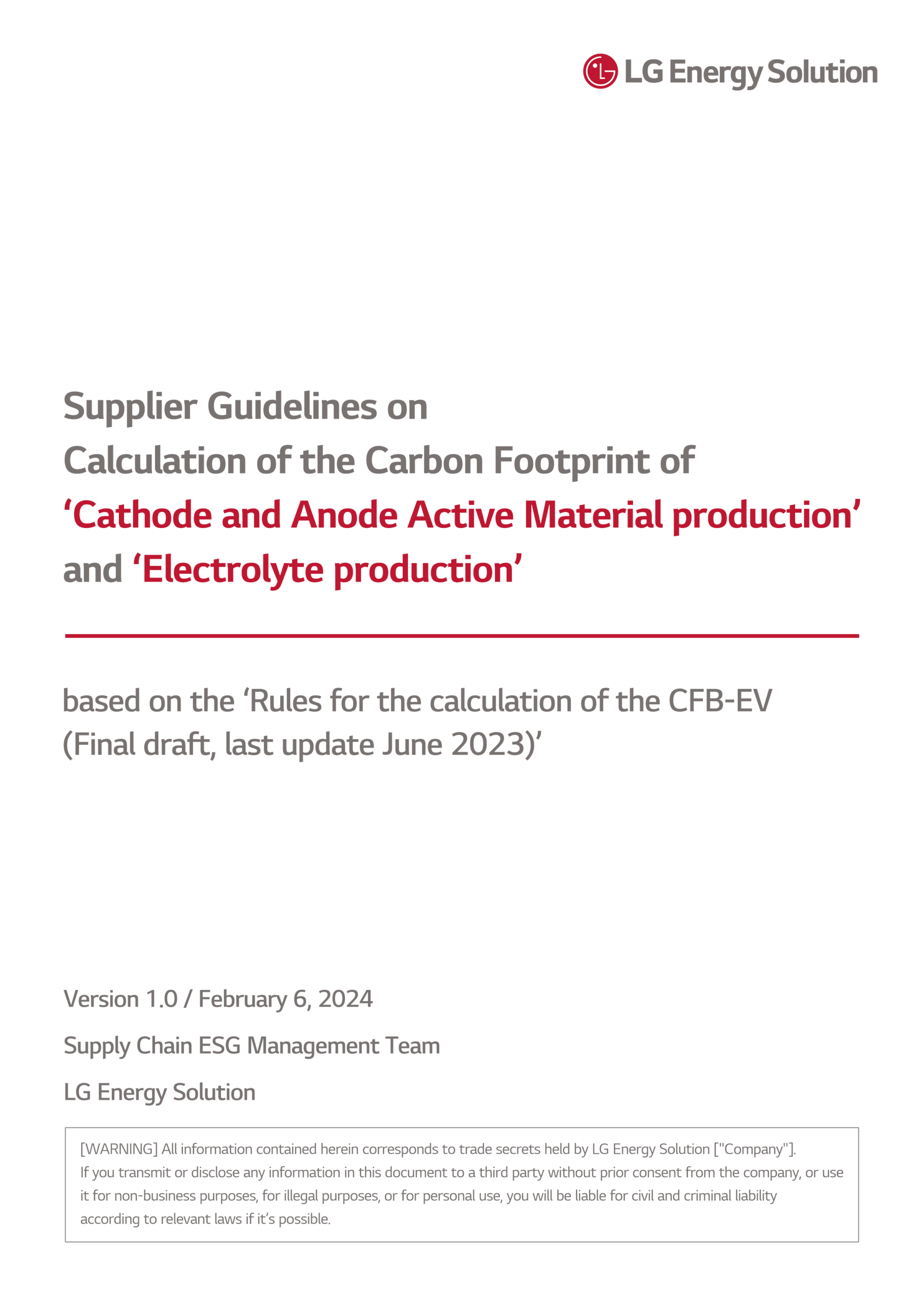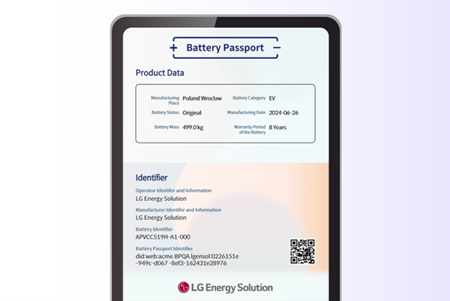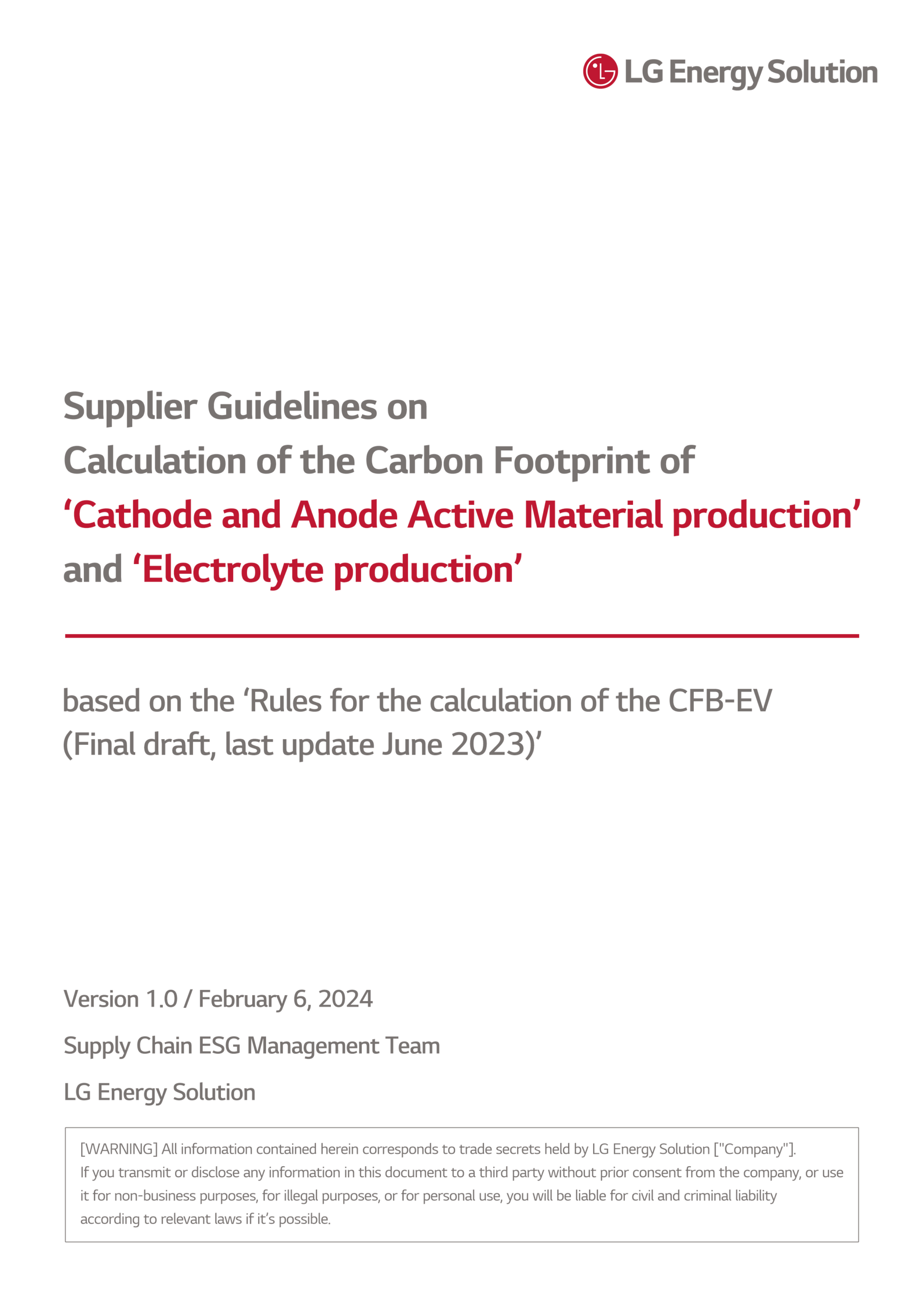- LG Energy Solution leads the industry in carbon footprint reduction and the advancement of Battery Passport compliance standards to meet EU regulations.
- The company develops innovative data management systems and supplier guidelines to ensure transparency and sustainability across the battery value chain.
Batteries are powering the world’s transition to a cleaner future, but as demand for energy storage grows, so too does the need to ensure sustainability. The next challenge requires reducing carbon emissions, improving recyclability, and increasing transparency across the entire value chain.
Looking ahead, the EU will enforce strengthened battery regulations, including mandatory carbon footprint disclosures and the rollout of Battery Passport – digital records that track a battery’s lifecycle from raw materials to disposal. Compliance will be compulsory at every stage of development, from design and procurement to manufacturing and distribution.
LG Energy Solution stands at the forefront of this transformation as a global leader in advanced battery technologies, taking proactive steps to align with the new standards by developing its carbon footprint management system, distributing carbon footprint calculation guidelines for its suppliers, and establishing an in-house proprietary Battery Regulation Management system.
To provide accurate carbon data and demonstrate transparency, LG Energy Solution has developed a robust Product Carbon Footprint (PCF) data management system. A PCF is the total amount of greenhouse gas (GHG) emissions linked to a product across its entire life cycle, from raw material extraction and manufacturing to distribution, use, and disposal.
The system integrates internal data such as energy use, production volumes, wastewater, and waste, enabling precise tracking of emissions and improving data quality for more informed decision-making.
As part of this effort, LG Energy Solution leverages Life Cycle Assessment (LCA), a method that evaluates the environmental impact of a product throughout its lifecycle, from raw material extraction to end-of-life. LG Energy Solution has applied LCA since 2019 to communicate with key stakeholders, identify carbon hotspots, calculate product footprints, and shape its long-term carbon neutrality strategy.
To further streamline data sharing, the company is also developing its own Battery Regulation Management (BRM) system, designed to integrate over 100 data fields such as carbon footprint, recycled content, material origin, and ESG indicators. Through these efforts, LG Energy Solution is positioned to meet regulations ahead of schedule, reinforcing its leadership in sustainable battery practices.

(Source: LG Energy Solution ESG Report)
In addition to advancing battery technology and internal carbon tracking, LG Energy Solution is working to reinforce sustainability across its supply chain by publishing a PCF Calculation Guideline for suppliers. Released in February 2024, the document outlines the purpose, methods, and reporting framework for product-level carbon footprint calculations under Article 7 of the EU Battery Regulation. This clear and standardized approach empowers suppliers to meet upcoming carbon footprint disclosure requirements with confidence.
Furthermore, the guideline will be continuously updated to reflect the latest standards, supported by verified LCA data collected and monitored for key materials such as cathodes, anodes, and electrolytes.

In addition, reflecting its commitment to regulatory compliance and environmental leadership, LG Energy Solution is taking early action to prepare for the EU’s mandatory Battery Passport system, effective February 2027. This digital ID will trace a battery’s lifecycle, providing stakeholders with access to supply chain data, including raw material sourcing, production, usage, recycling, and disposal.
To lead this transition, LG Energy Solution built a functional battery passport mock-up system to explore real-time data collection and management in line with regulatory requirements. It has also joined the Global Battery Alliance (GBA) Battery Passport pilots to operationalize supplier data collection and validate alignment with GBA ESG rulebooks and global traceability standards.
LG Energy Solution is committed to going beyond regulatory compliance to lead data-driven battery innovation. By advancing its PCF data management system, enhancing its BRM system, and preparing for the implementation of Battery Passports, the company is paving the way for greater transparency and sustainability in the industry. This will foster a more responsible and resilient supply chain, empowering suppliers, strengthening industry standards, and contributing to a cleaner future for all.
+ To stay up to date with the latest news from LG Energy Solution, click “Subscribe.”
